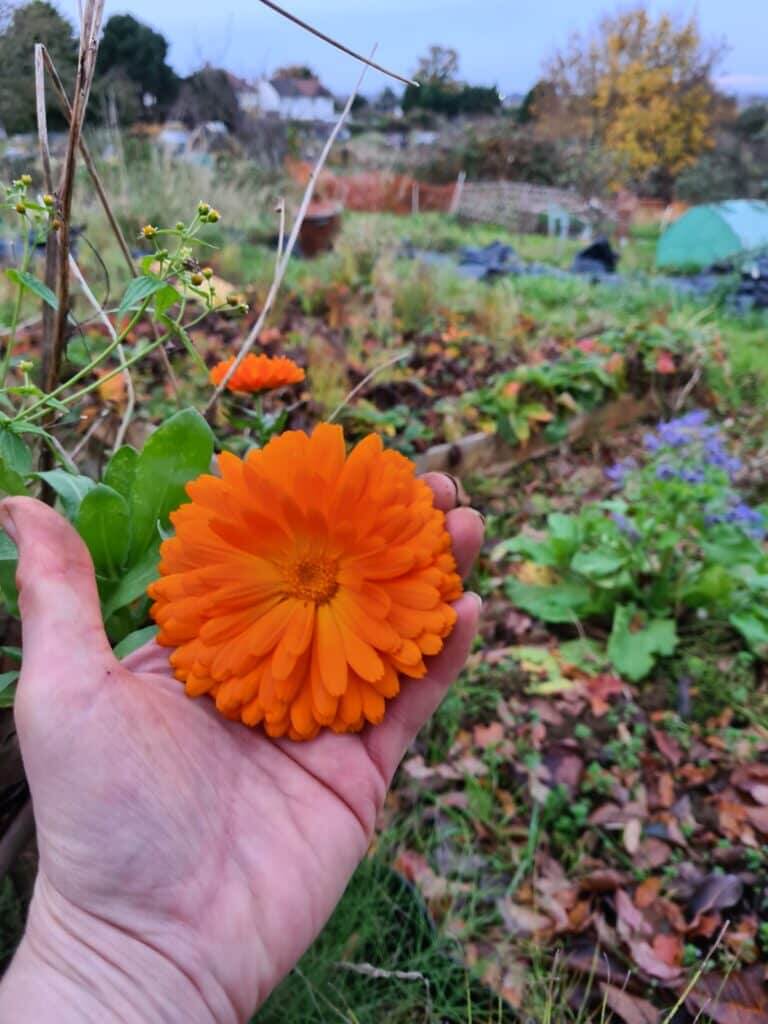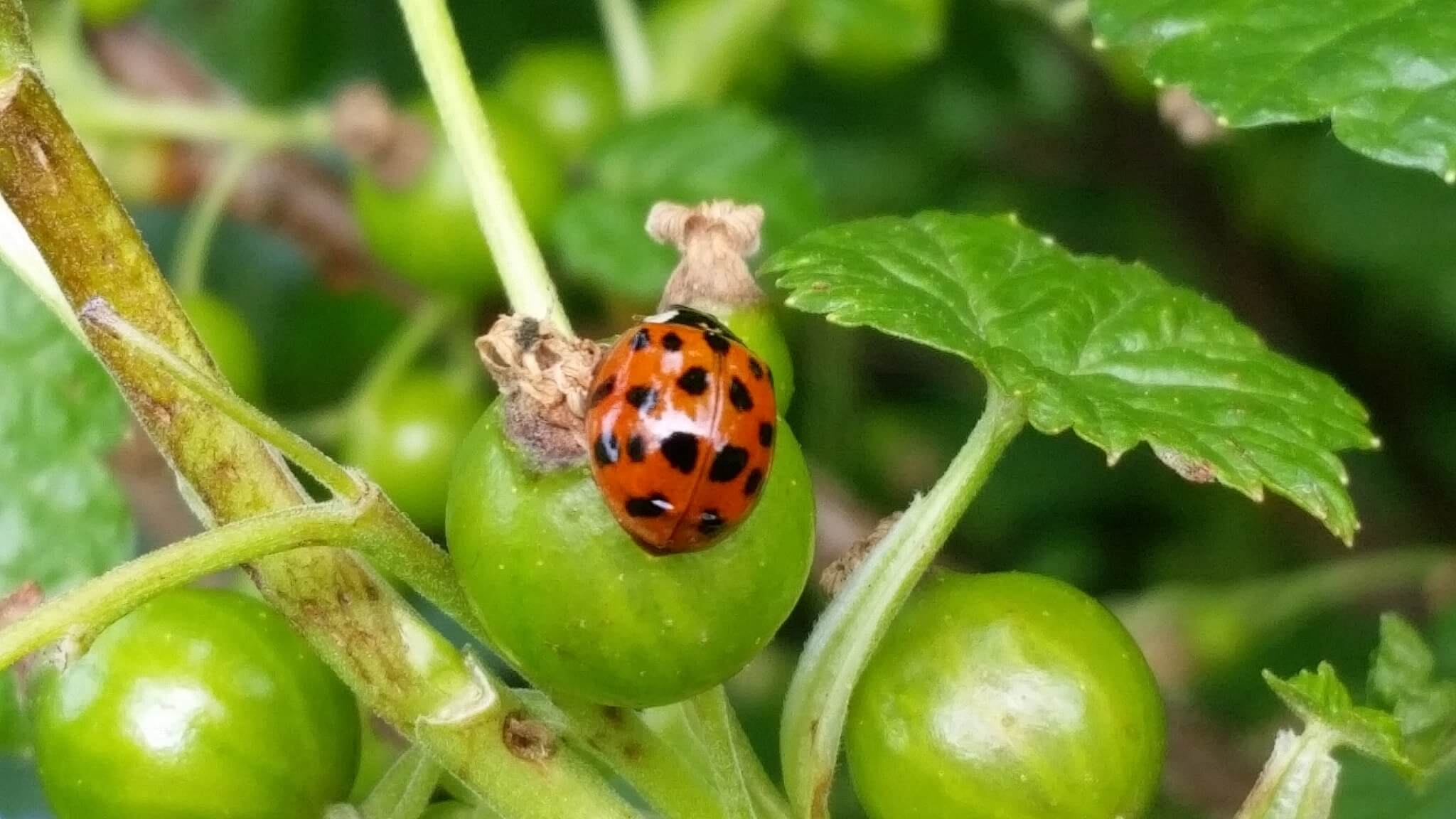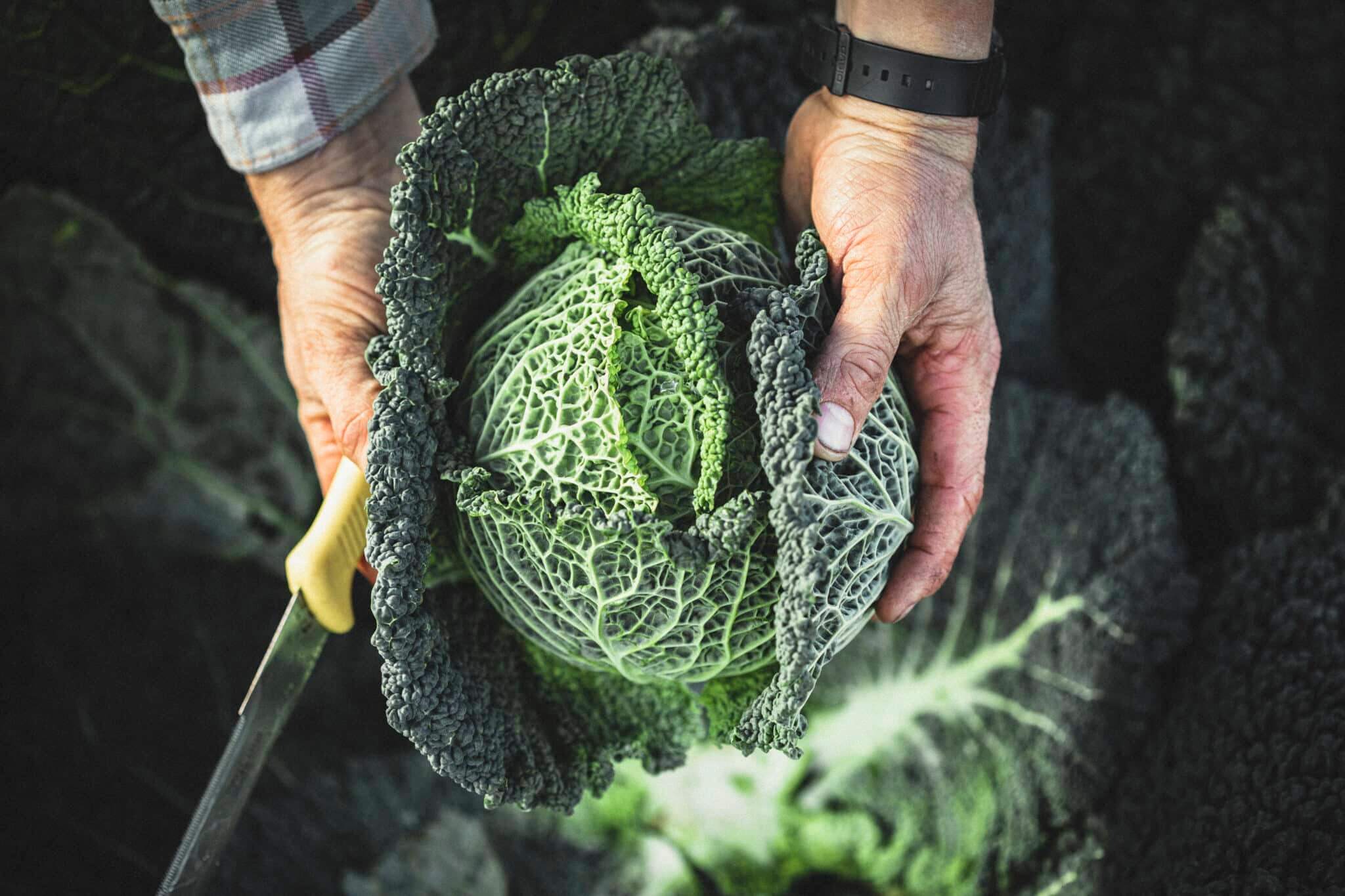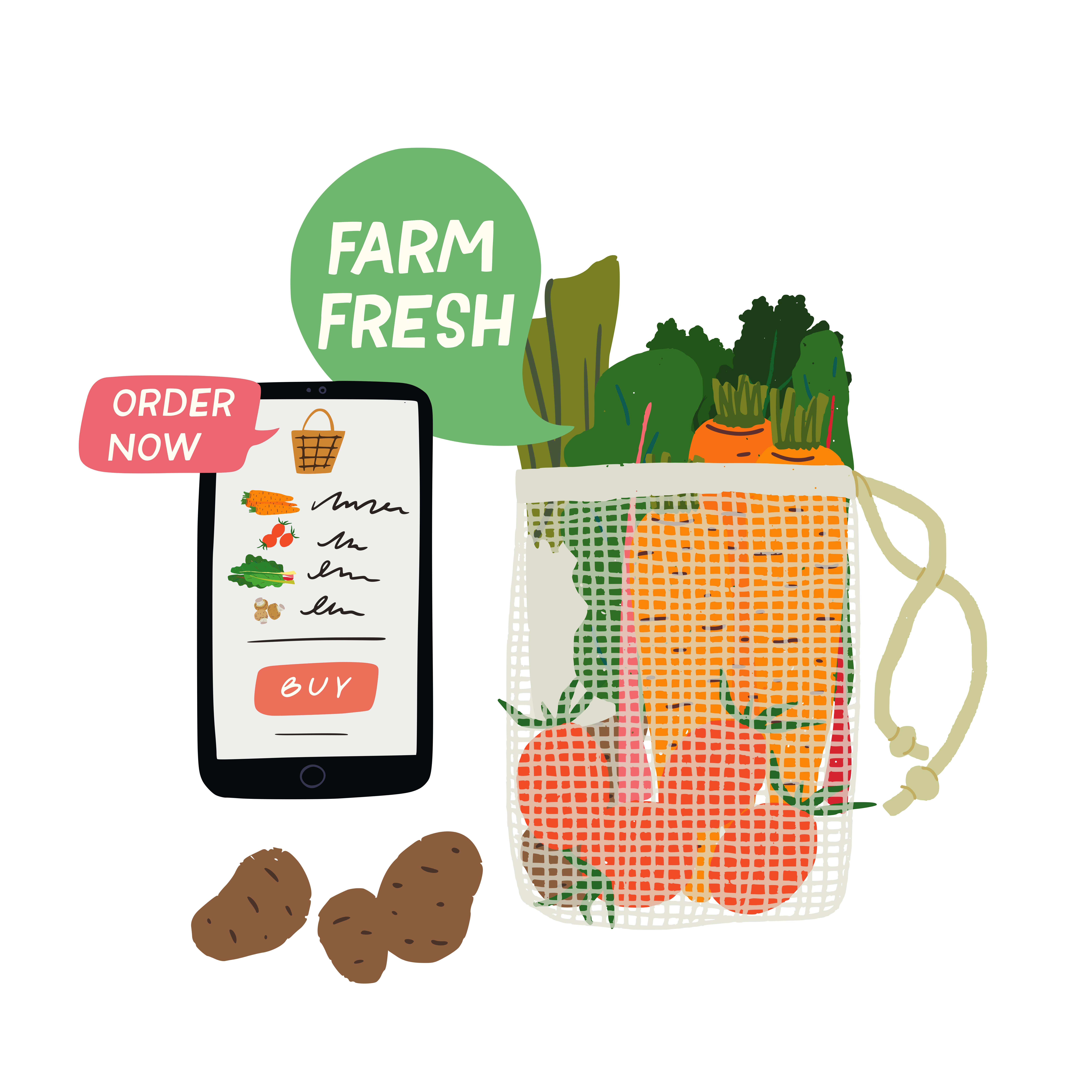I don’t like to call any wildlife a pest. Even the most annoying aphids play a crucial part in my organic garden ecosystem. But sometimes the balance between healthy plants and bugs can tip in the favour of an infestation. And at this time of year, with so many new shoots emerging there’s plenty for them to feast on. Aphids like the sappy stems of seedlings, and slugs can mow through a young row of lettuce seemingly overnight.
Because I love the wildlife as much as my homegrown vegetables, pesticides and blue pellets are never part of my arsenal. Over the years, I’ve learnt it’s best to learn to live with garden bugs and understand their habits and habitats. Many so-called ‘pests’ can be beneficial to the garden, and all play their part in the beautiful biodiverse jigsaw.
A key method I’ll use to reduce problems is by improving my soil with mulch and green manures. This provides the foundations for plants to grow healthily and therefore much more likely to withstand attack.
But there are other organic methods too. Here’s my troubleshooting toolkit:
Building habitats. I like to encourage and attract natural predators such as lacewings, butterflies and ladybirds by providing shelter and habitats for them. High-rise hotels of twigs, straw and leaves work wonders – but I’ll also pile old logs and bits of wood under shrubs for burrowing beetles. At my allotment, I have patches of weeds such as dandelion and nettles among my neat rows of veg.
Companion planting. Strong-smelling plants such as marigolds planted next to tomatoes help confuse the pest’s smell-based navigation system. Marigolds will also attract parasitic wasps and hoverflies, the larvae of which are partial to a tasty aphid. I find a row of attractive ‘sacrificial’ plants next to the ones you want to keep is useful. This includes nasturtiums next to cabbages, as they’re very attractive to cabbage white butterflies looking for somewhere to lay their eggs.

Barriers. Sharped-edged eggshells, seaweed or wool pellets, placed around the base of plants, isn’t a failsafe way to prevent slugs but anything that slows down their marching on a warm spring day is helpful! Netting over cabbages is a good way to stop caterpillars making Swiss cheese of leaves, and birds from pecking holes. Net curtains are a cheaper alternative to horticultural netting. I’ll also hang old CDs from strings to catch the breeze (and the light) to deter pigeons.
Garlic spray. My go-to way to reduce flea beetle is to crush garlic into water and spray onto the leaves of affected plants. This has the added benefit of putting off slugs too.
Crop rotation. I’ve had great results from growing crops in different locations each year. I group crops into: alliums (onion, leek, garlic), brassicas (cabbage, Brussels sprouts, kale, radish), potatoes (I’ll also include peppers and tomatoes in this), legumes (peas and beans) and roots (carrot, celeriac, parsnips, Florence fennel) and rotate them each growing season to a different part of the plot. This has noticeably reduced soil-borne pests and diseases such as potato blight, and helps me prepare the soil in advance for hungry crops.
The Grow Your Own Wicked Leeks series is written by Garden Organic, the national charity for organic growing. Each month we bring you timely advice on what to do in your organic patch, whether you’re an experienced grower or just starting out. Share your own tips and gardening photos on social media under #GYOWickedLeeks.










0 Comments